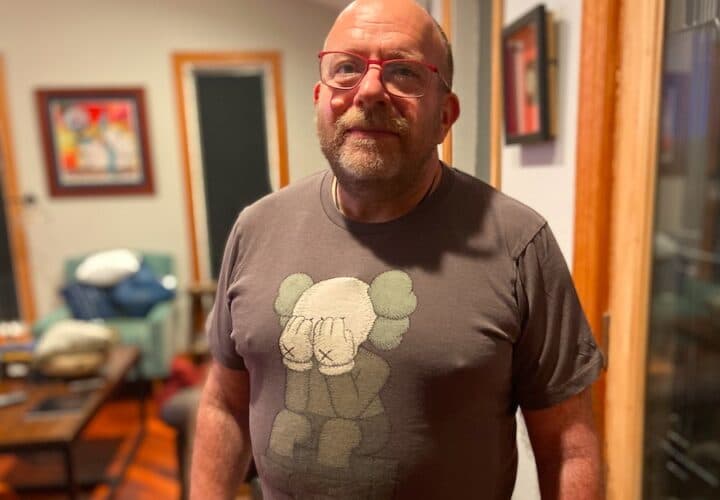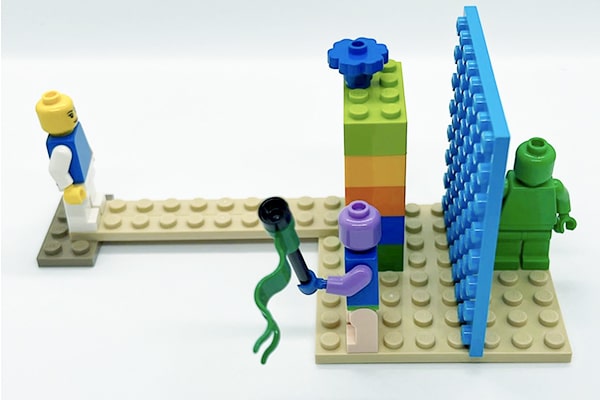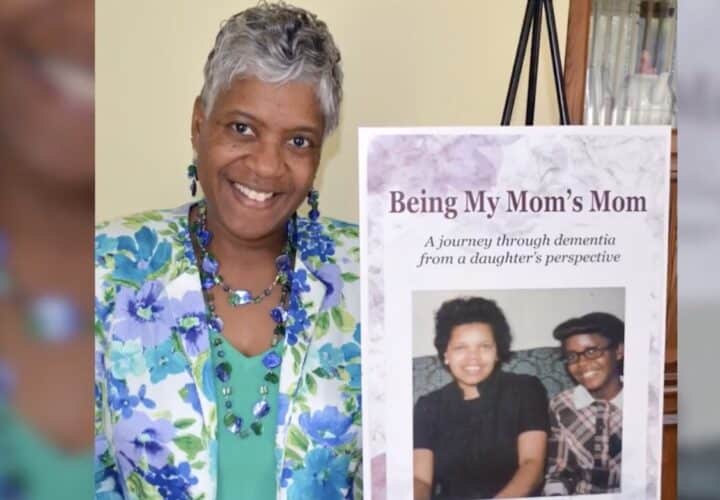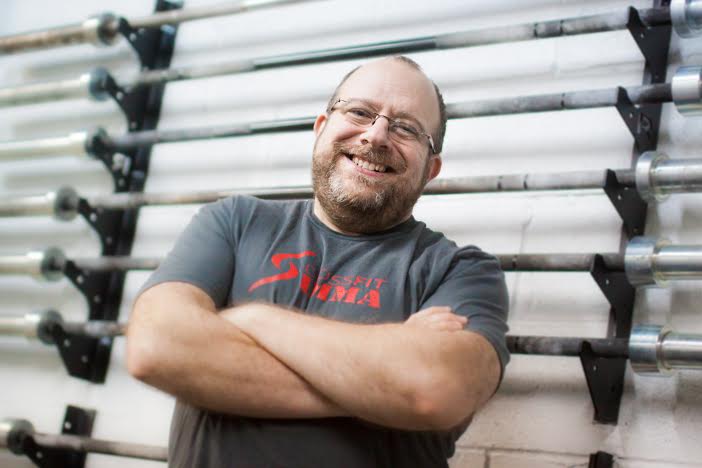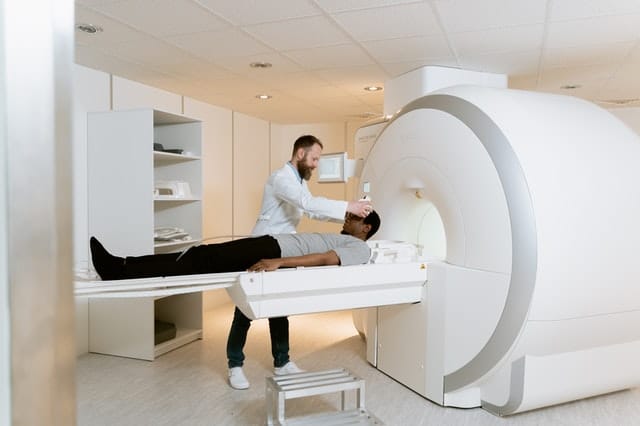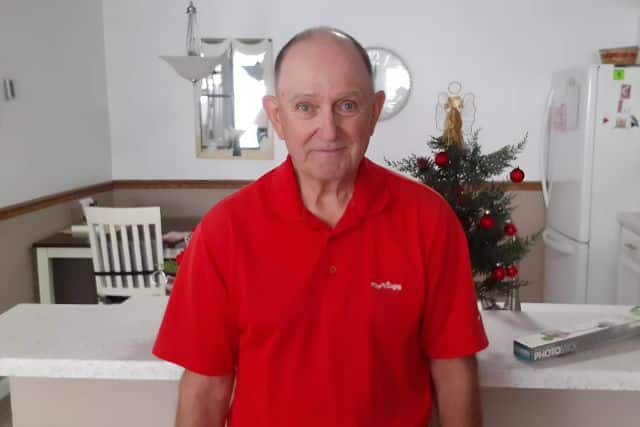As the end of the aducanumab trial nears, Being Patient columnist Phil Gutis checks in.
Growing up, I wanted to be an architect. It wasn’t until I realized how much math was involved that those initial dreams died a very hard death, since numbers and I have never really gotten along.
These days, however, I’ve become a builder extraordinaire. In the last nine months, I’ve built the Statue of Liberty, a pirate ship, a light house with a working fog light. I’ve tackled the Saturn rocket and shuttle Discovery and built a very detailed Daily Bugle building, complete with coffee machine and copiers and a variety of monsters and heroes from Spider Man.
Most recently, I finished Cinderella’s Castle and I’m now hard at work on the Hogwarts Express. In between, I’ve built Yoda and Winnie the Pooh’s Hundred Acre Woods.
Yes, yes, I’ve rediscovered Legos. And in the nine months since I wrote about a program that uses Legos to help people living with Alzheimer’s communicate, I’ve become a bit of a Lego fanatic. Everyone needs a hobby, right? And if the hobby comes with side benefits such as working portions of my brain that are the weakest – following directions, counting – then isn’t that is an added bonus, right?
Maybe. These days I’m often left wondering what those little bricks are telling me. In the last several months, I’ve started to struggle more and more on the complex builds. Parts of the aforementioned Hogwarts Express continue to baffle me. In fact, I’ve become so frustrated that I’m on a bit of a Lego hiatus.
The Lego confusion does not stand on its own. I’ve definitely noticed some other slippage with my cognitive abilities. Everything is a bit more of a struggle. (Even writing this column took me weeks.)
Lately, my attention span is horrible. I feel like I have a new and quite profound case of ADHD. I can read for a few minutes, then find myself bouncing over to Netflix for a few minutes and then off to play a game. And then the pattern repeats.
Most disturbingly, I’m beginning to think I’m developing symptoms of Lewy Body dementia, which is characterized by Parkinsonian movement disorders, trouble sleeping including things like punching, kicking or screaming while asleep. (I do have some rip-roaring dreams, one of which caused my husband Tim to come running into the bedroom because I was screaming. Another time, I almost fell out of bed because I was punching someone in my dream.)
When I was expressing my fears to Tim recently, he told me that he’d noticed a new rigidity to my walking gait. And, I’ve been experiencing muscle tremors in my legs and arms.
Yes, all of this is self-diagnosing through research on the web. And I recognize that Dr. Google is not particularly good at diagnosis. I’ve got some appointments with neurologists I trust coming up, so hopefully I’ll get some clarity (although Lewy Body is only really diagnosed through autopsy).
While Lewy Body is not treatable in itself, apparently some of the more troubling symptoms are treatable so that’s something to hope for.
Cognitive slippage and fears about Lewy Body are not the only thing dragging me down these days. Readers of my column know that for most of the last seven years, I’ve been receiving Biogen’s aducanumab (also known as Aduhelm) through a clinical trial. Well that trial is finally coming to an end and I’m trying to figure out what’s next in terms of potential treatment.
I’m getting mixed information about this, but some experts have told me that clinical trials will be blocking anyone who has received either aducanumab or lecanamab (aka Leqembi). These two drugs were the first two disease-modifying treatments ever approved by the FDA for Alzheimer’s. And the rational part of my brain understands why other drug companies would not want anyone in their trials who has ever received the drug.
All in all, I’m feeling worse about my prognosis than I have in a very long time. I hope getting some expert input into what’s happening with me will help resolve some of the depression and anxiety that is bedeviling me. I’ll certainly strive to report on what’s happening in future columns here at Being Patient. And I’ll continue to try to stay as positive as possible through all the uncertainty.
In conclusion, I wanted to quote a recent blog post by my good friend Jeff Borghoff, who is in the same boat as me with the aducanumab trials. He captured the hurt that we long-time participants in the Biogen trials are feeling as we end our participation.
From Jeff:
Today, I am reflecting on my 148th aducanumab infusion, and the realization that my next infusion will be my last as part of this multiphase clinical trial. This is a bittersweet moment for me, as my family and I believe aducanumab has been a lifesaver, improving my cognitive function and helping me to live a more fulfilling life. But now, with this trial phase coming to an end, I am filled with anxiety and uncertainty about what the future holds.
As a long-term trial participant, I feel a sense of responsibility to advocate for myself and others who have been on this journey with me. We have invested so much time and effort into working with the memory centers and Biogen to progress this medication, and it is difficult to know that we may no longer have access to it.
The reality of the situation is that aducanumab, branded as Aduhelm, may cost thousands of dollars, and many people will not be able to afford it. This is a tragedy, as it means that people who have put in so much time and effort to help advance this medication may not be able to continue to benefit from its life-saving effects. This challenge is even greater because Medicare has refused to provide coverage for this groundbreaking drug, a decision followed by commercial insurance companies.
This is why I am calling on Biogen to partner with those of us who have participated in the trials and recognize the value of our efforts. As long-term trial participants, we believe that we should be offered the opportunity to remain on the medication for as long as possible, as long as we continue to meet the criteria. We need Biogen to understand that we matter, and that our contributions should be valued and rewarded.
Today marks an important moment in my journey with aducanumab, and I hope that it will lead to a brighter future for everyone involved. I believe that with the right support, we can overcome the challenges that lie ahead, and ensure that everyone has access to the life-saving benefits of this medication.
I hope to report soon that my fears were unwarranted —, that Biogen has figured out a way to keep us on the drug that would have not been approved without our participation and that I’ve finished the Hogwarts Express and happily building the Lego jazz club and the hotel that sit still in their boxes in our living room.
Until then, Jeff and I – and all of those living with this terrible disease – could very much use, as the politicians say, your thoughts and prayers. Stay tuned.
Phil Gutis is a former New York Times reporter and current Being Patient contributor who was diagnosed with early onset Alzheimer’s. This article is part of his Phil’s Journal series, chronicling his experience living with Alzheimer’s and his participation in the aducanumab clinical trial.
